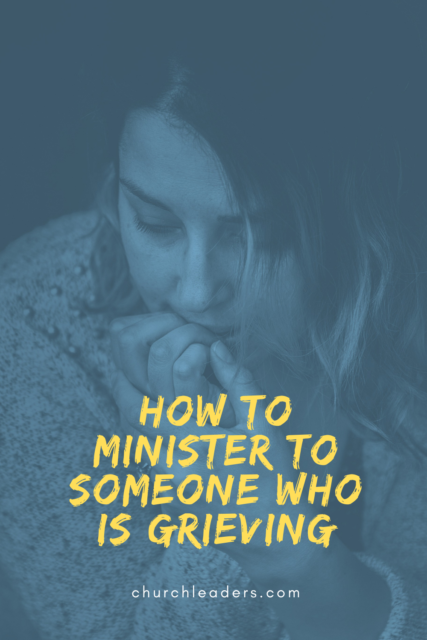A person in grief must embrace the journey and take time for themselves to truly process and heal. If they don’t, months, and even years down the road, consequences will be felt both physically, emotionally, and spiritually.
If you have never felt grief, I’d encourage you to stop and think about what it might be like. Think about losing your sister or wife or good friend. Really think about the loss this would bring to your world. Try to understand grief, even if you haven’t been there yet. This might help you have more sympathy and patience for someone grieving.
3. Don’t react in fear to grief.
I know lots of people get really stiff around people in grief. Some will not say anything, they’ll avoid mentioning it because they “don’t know what to say.” They avoid the person. They won’t look them in the eyes.
Fear never helped a person in grief. Don’t react in fear. Don’t shut out someone who is hurting. Don’t pretend it didn’t happen just because you feel awkward. That is the last thing a person in grief needs: to feel more alone than they already feel on this confusing journey.
Instead, acknowledge the pain. Let their grief be a normal thing for you. Don’t treat someone’s sadness or pain as an abnormality they need to “get over.” Treat it simply as a part of them now. Part of a friend you care about. Treat them as a human being with emotions worthy of feeling.
Don’t just assume they’re “over it,” even if a lot of time has lapsed. Know that every day, they think of the person they lost. They might laugh and smile more now, but they still feel the loss. Keep asking, “How are you doing? How can I be supportive of you? How can I best show my love to you as a friend?” Keep asking about it long after the funeral has passed. Just acknowledge that they are hurting. Treat them as human beings worthy of something as profound as grief. Here are things you can say when someone dies.
4. Don’t use words as band-aids, but show, through actions, your genuine encouragement and support.
What do you say? What do you not say? I would simply say that it’s more about the heart behind the words than the actual words that can offend or help someone in grief. For me personally, I could tell when someone was using words as band-aids to try and cover up my grieving. “Trust in the Lord!” “She’s in a better place!” “Don’t ask why just trust!” “At least she’s in heaven now!” Etc., etc., etc.
When words are used as band-aids, they are selfish and detrimental. They show that someone wants to pass over pain lightly, and someone doesn’t truly want to sit there with you and feel the depth of the emotions you’re feeling. They want things fixed quickly so they can move on and be happy.












